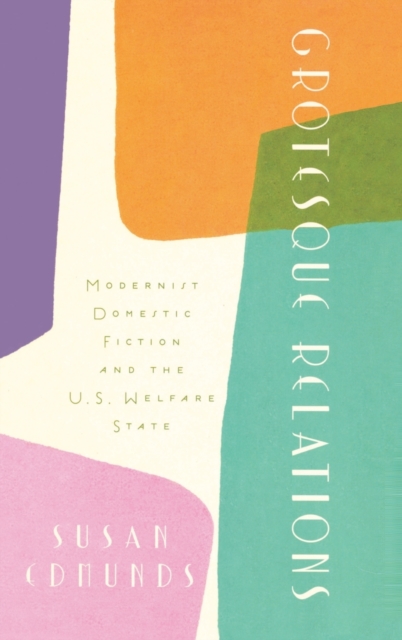
Grotesque Relations : Modernist Domestic Fiction and the U.S. Welfare State Hardback
by Susan (, Syracuse University) Edmunds
Hardback
- Information
Description
In this book, Susan Edmunds explores he relationship between modernist domestic fiction and the rise of the U.S. welfare state. This relationship, which began in the Progressive era, emerged as maternalist reformers developed an inverted discourse of social housekeeping in order to call for state protection and regulation of the home.
Modernists followed suit, turning the genre of domestic fiction inside out in order to represent new struggles on the border between home, market and state. dmunds uses the work of Djuna Barnes, Jean Toomer, Tillie Olsen, Edna Ferber, Nathanael West, and Flannery O'Connor to trace the significance of modernists' radical reconstitution of the genre of domestic fiction.
Using a grotesque aesthetic of revolutionary inversion, these writers looped their depictions of the domestic sphere through revolutionary discourses associated with socialism, consumerism and the avant-garde.
These authors used their grotesque discourses to deal with issues of social conflict ranging from domestic abuse and racial violence to educational reform, public health care, eugenics, and social security.
With the New Deal, the U.S. welfare state realized maternalist ambitions to disseminate a modern sentimental version of the home to all white citizens, successfully translating radical bids for collective social security into a racialized order of selective and detached domestic security.
The book argues that modernists engaged and contested this historical trajectory from the start.
In the process, they forged an enduring set of terms for understanding and negotiating the systemic forms of ambivalence, alienation and conflict that accompany Americans' contemporary investments in "family values."
Information
-
Out of StockMore expected soonContact us for further information
- Format:Hardback
- Pages:272 pages
- Publisher:Oxford University Press Inc
- Publication Date:14/08/2008
- Category:
- ISBN:9780195338539
Information
-
Out of StockMore expected soonContact us for further information
- Format:Hardback
- Pages:272 pages
- Publisher:Oxford University Press Inc
- Publication Date:14/08/2008
- Category:
- ISBN:9780195338539